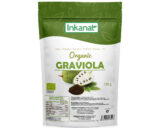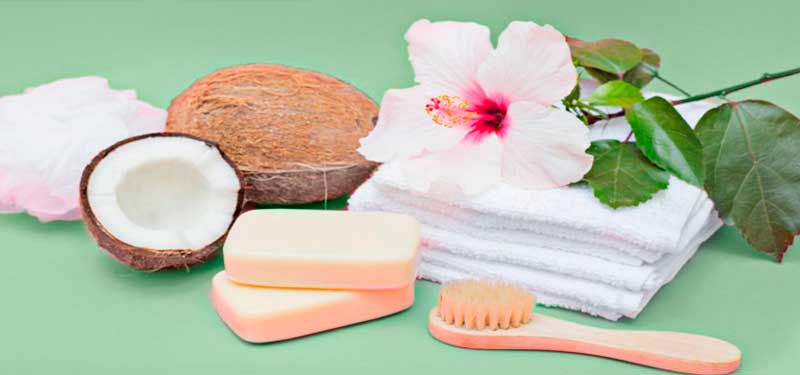Subtotal: S/. 18,00
The best for the natural care of sensitive skin, without animal fat
The raw materials used to make these handmade soaps are 100% high-quality vegetable such as rosehip oil, olive oil, sea mud, calendula, aloe vera … and they are used in their entirety. The skin benefits not only from a healthy cleansing but from long-lasting hydration and nutrition.
Artisan soaps are of better quality and more beneficial to the skin than commercial soaps. They are softer, do not contain additional chemicals and do not cause irritation reactions or any other type of skin problem.
The Artisan Soaps. Protection and hydration of the skin.
Artisan soaps are of better quality and more beneficial for the skin than commercial soaps because, unlike industrial soaps:
They preserve the natural glycerin helping to keep the skin hydrated.
They are softer, do not carry additional chemicals and do not produce rea.
irritation or any other type of skin problem.
The raw materials are not isolated and are used in their entirety in their manufacture, leaving the unsaponifiable substances in the oils to form part of the final product.
They contain beneficial oils that help nourish the skin, guaranteeing the use of natural and premium quality raw materials such as vegetable oils, herbs, essential oils.
For all this, artisan soaps are ideal for skin with problems such as atopic dermatitis, psoriasis, allergies, etc. and for a complete hydration and nutrition of normal skin.
Inkanat Handmade Soaps. Ethics and Quality. Our soaps are not made with animal fats for quality and ethical reasons. In addition to the fact that it is not necessary to use animal fat to make soaps, these fats are of poorer quality than vegetable fats for hydration and nutrition of the skin.
The manufacturing process of our handmade soaps is cold without the need for extra heating and taking advantage of the combustion temperature of the saponification process itself. These soaps are manufactured in 6 kg bars and are cut by hand, ensuring a completely handmade process. It is ensured that the temperature is not too high of about 40 or 45 degrees maintaining a meticulous and careful preparation.
The raw materials used to make these handmade soaps are 100% high-quality vegetables such as rosehip oil, olive oil, sea mud, calendula, aloe vera, sweet almonds, lavender, grape seed, coconut, extract of fucus, essential oil of cypress, essential oil of lemon, wheat germ, ivy, rose essence … and they are used in their entirety. The skin benefits not only from a healthy cleansing but from long-lasting hydration and nutrition.
The skin. PH care
The skin’s hydrogen potential (pH), also known as the acid mantle, constitutes the best natural defense barrier against skin irritations and problems.
This pH is neutral at birth (pH7), and then progressively becomes more acidic (pH 5 to 6). Healthy skin has a pH between slightly acidic and neutral. Alkaline products (pH greater than 7), in addition to not protecting the skin, can damage its hydrolipidic film.
Soap composition: oil plus water.
The discovery of soap marked a before and after in hygiene habits. Ancient Egypt already used a soapy product that consisted of a mixture of water, oil and vegetable or animal waxes.
As is known, fats repel water, however they are part of the soap manufacturing process. One of the most obvious ways in which the phenomenon of oils is observed is in the baths of ducks in a pond; They swim without apparent concern about being wet by cold waters and when they leave the pond, they simply shake off the surface drops, leaving their plumage as dry as before contact with the water.
The advantage of ducks is that their plumage is covered by a layer of fat that makes them waterproof. That highlights the well-known fact that water and oil don’t mix.
In the same way that water does not mix with grease, it is not possible to wash oil stains with water, but it can nevertheless be washed with soap.
The cleaning effect of soaps and detergents is due to the fact that in its molecule there is a part that attracts oil (lipophilic) and another part that attracts water (hydrophilic), in this way, thanks to its molecular composition, soap takes up fat and takes it to the water.
Soap Manufacturing. Saponification.
Soaps are prepared through the chemical reaction of saponification.
Vegetable oils and animal fats have in their composition fatty acids that when treated with an aqueous solution of soda or potash are saponified, producing soap and releasing glycerin. The soap will be solid if it is treated with soda and liquid if it is treated with potash.
The pH level of the soap will determine its subsequent use, so a soap with a pH higher than that of the skin itself, that is, alkaline and irritating to the skin, can be considered as a detergent soap, and therefore not recommended for use. personal.
Types of Soap: Industrial and Artisan.
Commercial and artisan forms of soap making differ greatly both in their process and in the quality of their final product.
In industrial soaps, the saponification process is accompanied by an extra heating that accelerates the chemical reaction. The oil raw materials that are used in this process are fatty acids isolated from vegetable or animal oils, so that the rest of the non-saponifiable components that the raw materials contain do not remain in the final product.
The glycerin generated by the saponification process itself is isolated and sold separately as another product. Industrial soap is devoid of both unsaponifiable substances and glycerin.
These elements that are not in industrial soaps are important for the skin, because they help in its hydration and nutrition.
In addition to these deficiencies in these soaps, chemicals are also added that can cause irritation and other skin problems. This industrial process tries to maximize profit and minimize investment, with the consequent degeneration of the product.
Aleppo soap
Due to its content of laurel essential oil and olive essential oil, it provides a soft and delicate foam that effectively cleanses the skin and effectively inhibits the development of skin contact bacteria; It is not irritating and on the contrary produces a soft sensation.
Its peculiar natural components give it a moisturizing activity that protect and ventilate the skin, preventing it from drying out, giving it a tender sensation of morbidity. Its constant use will give softness, tenderness and health to the skin.
It should be noted that Aleppo soap was specially developed entirely with natural ingredients, to provide special skin care.
Homemade Recipe for the Manufacture of a Natural Soap
The manufacture of a natural homemade soap is a simple process and of great benefit for your skin.
Ingredients: Sosa (10 tablespoons), olive oil first use (1/4 liter), water (1/4 liter), coconut oil (100 ml), sweet almond oil (50 ml), honey (two teaspoons), milk (2 teaspoons)
Drops of any essential oil can be added.
Homemade tools: wooden spoon, non-metallic container.
Carefully mix the soda in warm water and stir with the spoon until it is homogeneous.
Let the mixture cool down.
Add the rest of the ingredients little by little and constantly move the spoon in the same direction until you get a paste.
Unmold in a day and a half and cut the pieces of soap.
Let dry before use.






